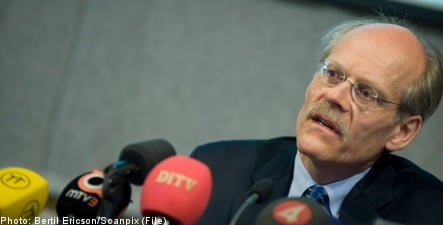“If the global economy recovers more quickly than we are predicting, this will also contribute to making monetary policy less expansionary,” Ingves said in a speech given at the Avanza Bank.
But before the Riksbank starts raising rates again, which won’t happen until 2010 according to the bank’s latest forecast, Ingves said he is open for even further cuts in the repo rate, Sweden’s benchmark interest rate.
“What the Riksbank must consider further ahead is whether economic developments require further interest rate cuts and whether the current monetary policy then needs to be supported by more unconventional methods. We must be prepared to be able to implement an alternative monetary policy if developments should so require,” said Ingves.
One option to an additional lowering of the repo rate, which currently stands at 0.5 percent, is to send signals that today’s lower interest rates will remain in place for an extended period of time.
“We can, for instance, announce that we are going to hold a low repo rate for a longer period than we assumed at the monetary policy meeting in April and show how the inflation path will then approach 2 per cent more quickly than otherwise. This would raise inflation expectations,” he explained.
The Riksbank governor added that he has seen certain signs of positive economic developments in recent months, mostly from the United States.
“It is as yet too early to talk of a stabilization in the US economy, particularly given that the labour market is continuing to weaken rapidly. However, there are signs that the rate of the downturn may be slackening,” said Ingves.



 Please whitelist us to continue reading.
Please whitelist us to continue reading.
Member comments